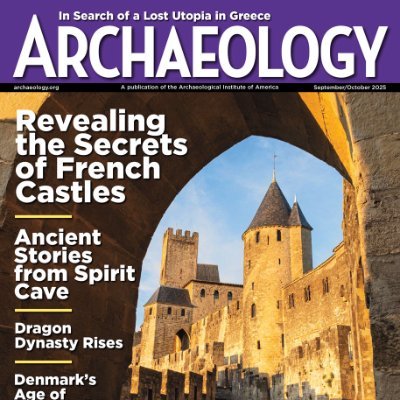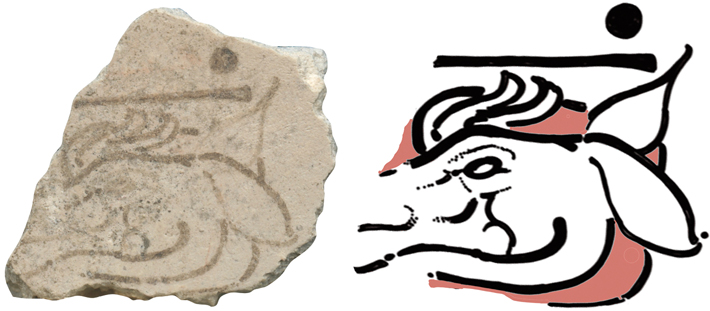The earliest known notation from the 260-day Maya ritual calendar, which was found in the ancient city of San Bartolo in Guatemala, is one of ARCHAEOLOGY’s Top 10 Discoveries of 2022.
https://t.co/STQZdZhge4
An Egyptologist believes that a “fantasy necklace” held in a private collection includes gold beads from the collar that was found on King Tutankhamun’s mummy and has since gone missing.
https://t.co/xJzDXtc1dh
#FrescoFriday—This fresco excavated in 2015 from a house in the Roman city of Arelate dates to the end of the first century B.C. It is among the highest quality wall paintings ever found in what was once ancient Gaul. #Roman #Art
https://t.co/855ow9EaYH
Archaeologists are reassembling thousands of mural fragments unearthed at the ancient city of San Bartolo in Guatemala that offer new information about the Maya’s conception of their place in the universe.
https://t.co/M2oZhOmMJo
Archaeologists are reassembling thousands of mural fragments unearthed at the ancient city of San Bartolo in Guatemala that offer new information about the Maya’s conception of their place in the universe.
https://t.co/M2oZhOmMJo
New research suggests that there were several waves of expansion and local extinction from a theoretical population hub where the ancestors of all Eurasians lived after migrating out of Africa some 60,000 to 70,000 years ago.
https://t.co/y8CYwgozfr
Researchers have used computer algorithm that sorts through high-quality genome sequences from ancient individuals, including three Neanderthals and a Denisovan, and thousands of modern humans, to create a family tree for all of humanity.
https://t.co/oungRYT2cZ
Using special camera filters under different light wavelengths, researchers are revealing the materials and techniques with which artists in Roman Egypt painted striking #mummy portraits between the 1st and 3rd centuries A.D.
https://t.co/FPFjCjnsot
Researchers have used X-ray CT scans to build a virtual 3-D model of the damaged, incomplete fossil skull of Homo floresiensis, a diminutive hominin nicknamed “the Hobbit” that lived on the Indonesian island of Flores between 60,000 and 100,000 years ago.
https://t.co/9jET0PRSiS
Researchers who danced for hours wearing reproduction elk tooth ornaments have suggested that distinctive marks on prehistoric teeth found in burials at a Mesolithic cemetery in northwestern Russia were made over the course of years of repeated dancing.
https://t.co/AyzcBUAUm4











